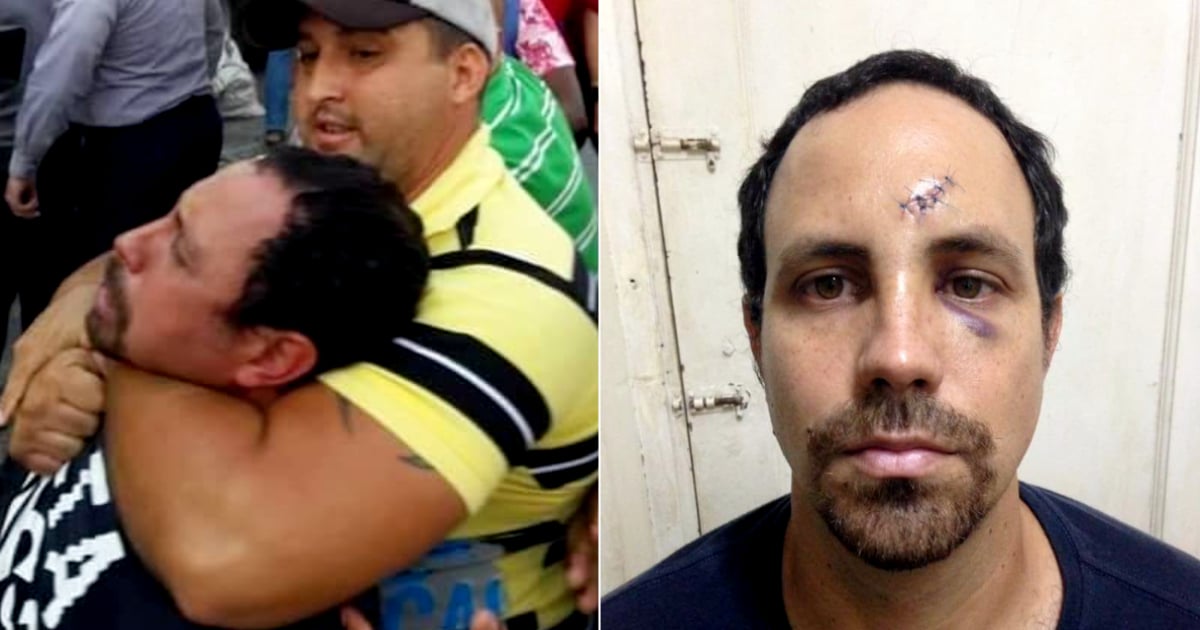On Tuesday, June 24, Cuban biochemist Oscar Casanella will stand before an immigration court in Miami for a hearing that could determine the future for him and his family. This pivotal day, which coincides with his eldest son's birthday, will decide whether U.S. authorities grant him political asylum or risk deporting him back to Cuba, where he fears for his safety.
"If I'm deported, my life is in danger," Casanella warned in a recent interview. His concerns are not unfounded; for years he has been under surveillance, repression, and threats from Cuban State Security. In 2021, after nearly a year under house arrest, isolated and closely watched, he decided to flee Cuba with his pregnant wife and young son.
Known for his activism, Casanella was a former Immunology professor at the University of Havana and worked closely with other dissidents such as Ariel Ruiz Urquiola and Gorki Águila. His association with the rebellious rock band 'Porno para Ricardo' intensified the crackdown against him since 2013.
On January 16, 2022, Casanella crossed the U.S. southern border at El Paso, Texas, seeking international protection. Unlike many Cuban migrants who received parole, he was released with an I-220A document, leaving him in a legal limbo without the benefits of the Cuban Adjustment Act.
"I wasn't given a credible fear interview. They just released me from the detention center two days later," he lamented.
Legal and Personal Challenges
Casanella's asylum process has dragged on, potentially lasting years, according to his attorney Deliane Quiles. "Several outcomes are possible on the day of the hearing. The case could be dismissed, or the judge might deny it, paving the way for an appeal. If expedited removal proceedings occur, a credible fear interview would be the next step," Quiles explained.
Meanwhile, Casanella's immigration status prevents him from accessing basic rights such as applying for residency, university scholarships, or certain jobs. He can't leave the country or apply for loans to settle with his family. "This process could last 10 years or more. My family and I are trapped in constant uncertainty," he told CiberCuba.
Advocating for Fair Treatment
The activist has publicly criticized the paradox of Cuban oppressors arriving in the U.S. with relative ease while dissidents like himself face bureaucratic hurdles. "It's unacceptable that those who repressed us are living freely here while we, their victims, remain unprotected," he lamented.
In a recent Facebook post, Casanella recalled the pressure to leave Cuba under direct threats of imprisonment: "They told me I had 30 days to leave, or I'd be locked in a closed regime. They could no longer assign 12 agents to watch my house daily."
Beyond Cuba, he has faced harassment by regime supporters in countries like the Dominican Republic. In 2017, he was interrogated and threatened at Santo Domingo's airport by alleged officials criticizing his connections with other activists.
Seeking Justice and a New Beginning
Now in South Florida, Casanella has the backing of some Cuban exiles and hopes the immigration court will consider his history of persecution. "I just want justice and a chance to rebuild my life in freedom with my family," he concluded.
His case highlights the complexities of the U.S. immigration system and the challenges faced by true Cuban exiles who fled following the regime's crackdown on protesters during the widespread demonstrations on July 11, 2021.
Understanding Oscar Casanella's Immigration Struggle
Why is Oscar Casanella seeking asylum in the United States?
Oscar Casanella is seeking asylum in the United States due to his fears of persecution in Cuba, where he has been subjected to surveillance, repression, and threats by State Security for his activism.
What challenges has Casanella faced in his asylum process?
Casanella's asylum process has been prolonged, leaving him in legal limbo without the benefits of the Cuban Adjustment Act, hindering his ability to access basic rights and establish a stable life in the U.S.
What support does Casanella have in the United States?
Casanella has the support of some members of the Cuban exile community in South Florida, who advocate for his case and recognize the persecution he has faced in Cuba.
